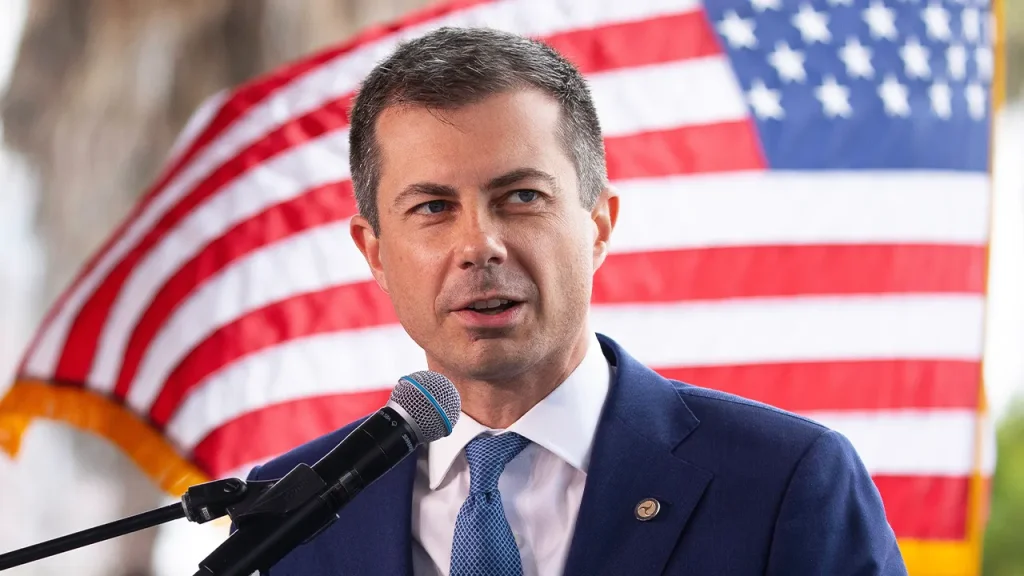Former U.S. Secretary of Transportation Pete Buttigieg has revealed that he is contemplating a run for the U.S. Senate in Michigan, following the announcement that incumbent Senator Gary Peters will not seek re-election in 2026. Speaking during an interview on CBS’s “The Late Show with Stephen Colbert,” Buttigieg expressed his desire to continue making a difference in the political landscape. This potential Senate bid may position him as a formidable candidate in an increasingly competitive race in Michigan, as several Democrats and Republicans are also eyeing the seat.
| Article Subheadings |
|---|
| 1) Buttigieg’s Consideration for Senate Campaign |
| 2) Strategic Meetings with Democratic Leaders |
| 3) Background on Buttigieg’s Political Career |
| 4) Democratic Contenders for Peters’ Seat |
| 5) The Political Landscape in Michigan |
Buttigieg’s Consideration for Senate Campaign
In a recent interview, Pete Buttigieg confirmed that he is seriously considering entering the Senate race in Michigan. This follows the announcement by current Senator Gary Peters that he would not pursue re-election, which has opened up a significant opportunity for potential candidates. Buttigieg stated, “I’ve been looking at it,” indicating both interest and an eagerness to engage with the electorate in his adopted state. He affirmed that while he has not yet made a formal decision, he is dedicated to remaining active in the political sphere, with discussions related to various avenues for contributing to public service.
Strategic Meetings with Democratic Leaders
Recent developments suggest that Buttigieg is actively exploring his options. Notably, he met with Senate Minority Leader Chuck Schumer, a significant figure within the Democratic Party. This meeting signifies Buttigieg’s serious intent to bolster his political position as he considers a Senate campaign. Sources close to the situation have stressed that Buttigieg is contemplating all possibilities that would enable him to contribute meaningfully, whether through running for office or engaging in other forms of political advocacy.
Background on Buttigieg’s Political Career
Buttigieg has built an impressive political resume that began with his tenure as the mayor of South Bend, Indiana, and later as the U.S. Secretary of Transportation under President Joe Biden. His experience encompasses various facets of governance and policymaking, having previously launched a presidential campaign that gained substantial traction. Starting as a “long-shot” in the 2020 race, Buttigieg saw a meteoric rise in popularity, emerging victorious in early contests such as the Iowa caucuses. His ability to appeal to a broad base within the Democratic Party positions him as a competitive candidate should he choose to run for the Senate.
Democratic Contenders for Peters’ Seat
Buttigieg is not alone in considering a run for the soon-to-be-vacant Senate seat. Several prominent Democrats have also expressed interest, including Mallory McMorrow, a state senator who garnered attention for her compelling speech countering GOP narratives. Additionally, Dana Nessel, the Michigan Attorney General, and Congresswoman Haley Stevens are viewed as potential candidates. Their involvement highlights a vibrant political environment, with varying degrees of public support and party loyalty shaping the race. Undoubtedly, Buttigieg’s entry, if realized, could reshape the dynamics within the Democratic primary.
The Political Landscape in Michigan
The upcoming Michigan Senate race is already deemed competitive, with Republicans keenly observing developments as they strategize for 2026. Currently, the political climate in Michigan is characterized by varying levels of voter engagement and party affiliations influenced by recent elections. Former Rep. Mike Rogers, who narrowly lost a race in 2024, is reportedly considering another attempt. This adds to the complexity of the political landscape, as both parties vie for control in a state that is essential for securing a Senate majority. Analysts suggest that Republicans could leverage their current advantages, with Michigan emerging as a critical battleground.
| No. | Key Points |
|---|---|
| 1 | Pete Buttigieg is considering a Senate run in Michigan after Senator Gary Peters’ announcement. |
| 2 | Buttigieg has met with Senate Minority Leader Chuck Schumer to discuss his potential candidacy. |
| 3 | His past political experience includes being the mayor of South Bend and serving as Transportation Secretary. |
| 4 | Several other Democratic candidates are also considering a bid for Peters’ seat, creating a competitive landscape. |
| 5 | The Michigan Senate race is viewed as a pivotal contest for both parties in the upcoming election. |
Summary
The potential candidacy of Pete Buttigieg for the Michigan Senate seat represents a significant development in the political landscape of the state. As he weighs his options, Buttigieg’s decision will not only affect his future career but also influence the broader Democratic strategy in a competitive race against various challengers. Both parties are poised to engage actively in campaigning, with the potential for a vibrant dialogue on critical issues as the election approaches.
Frequently Asked Questions
Question: Why is Buttigieg considering a Senate run?
Buttigieg is considering a Senate run due to the opportunity presented by Senator Gary Peters’ decision not to seek re-election, which has opened up a significant position within the Michigan political landscape.
Question: What prior experience does Buttigieg have in politics?
Buttigieg has served as the mayor of South Bend, Indiana, and held the position of U.S. Secretary of Transportation under President Biden, bringing experience in both local governance and federal administration.
Question: Who are other potential candidates for the Michigan Senate seat?
Other potential candidates for the Michigan Senate seat include state senator Mallory McMorrow, Michigan Attorney General Dana Nessel, and Congresswoman Haley Stevens, all of whom have expressed interest in the race.


